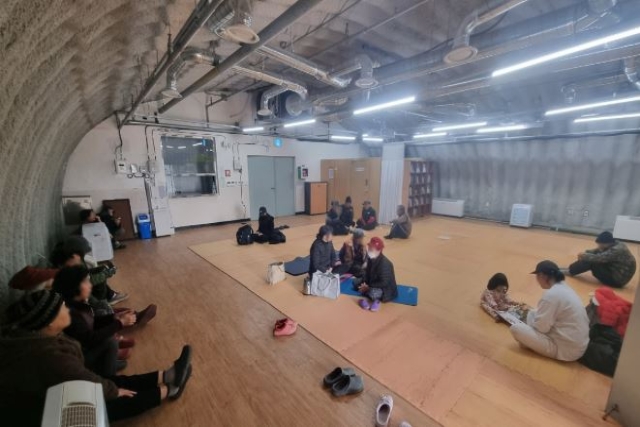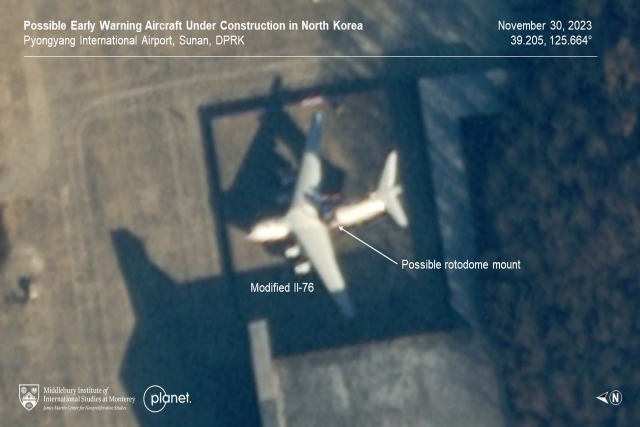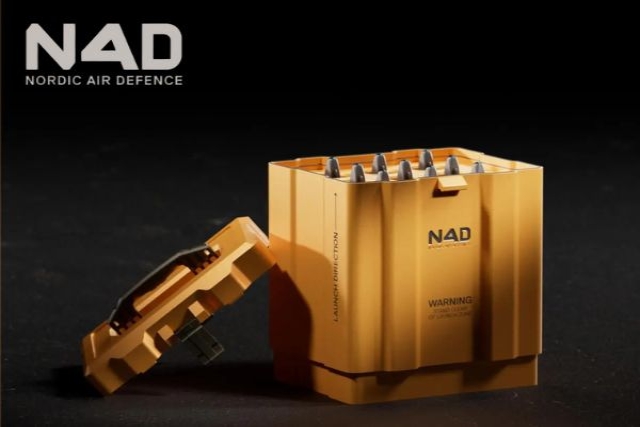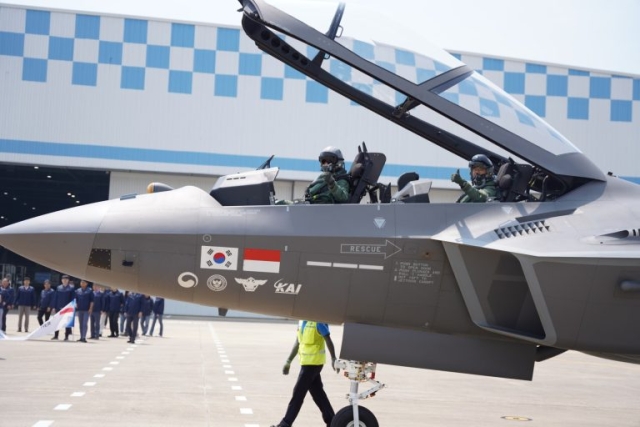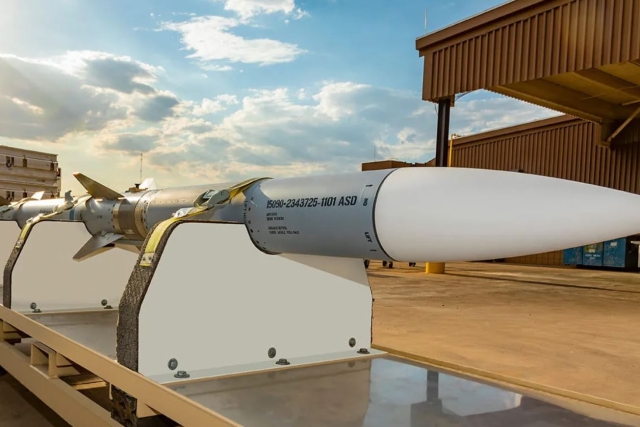North Korea Tests of Solid-fuel Missile Tipped with Hypersonic Weapon
Missile reportedly covered around 1,000 km before landing in the waters of Sea of Japan
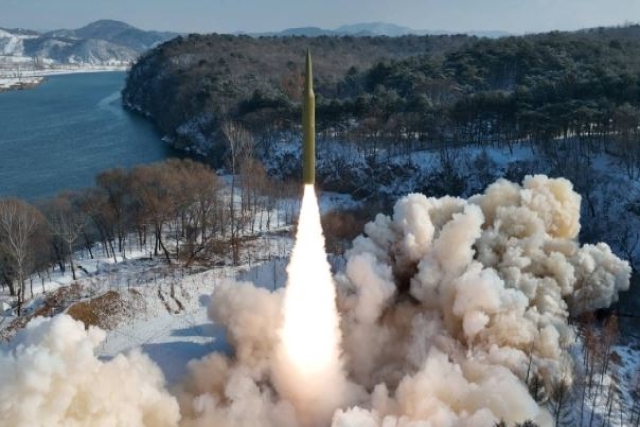
North Korea announced the successful testing of a solid-fueled intermediate-range ballistic missile (IRBM) equipped with a hypersonic maneuverable controlled warhead on Monday.
The missile reportedly covered around 1,000 kilometers and marks the regime's first missile launch of the year.
The Korean Central News Agency (KCNA) confirmed that the test aimed to validate the gliding and maneuvering characteristics of the intermediate-range hypersonic warhead, along with assessing the reliability of newly developed multi-stage high-thrust solid-fuel engines. According to the North Korean Missile Administration, the test posed no threat to neighboring countries and was part of routine activities for developing powerful weapon systems.
Japan's Defense Ministry reported that the missile landed in the waters of the Sea of Japan, outside its exclusive economic zone, extending 200 nautical miles from its coast. The range of an IRBM, as indicated by Japan, is up to 5,000 km, potentially putting the U.S. territory of Guam within reach if fired from certain parts of North Korea.
This launch follows North Korea's December 18 test of the Hwasong-18 solid-fuel intercontinental ballistic missile (ICBM). In November, the country claimed the successful testing of new solid-fuel engines for IRBMs.
Solid-fuel missiles offer strategic advantages over liquid-fueled counterparts, as they are easier to deploy and can be launched more swiftly, reducing the response time for the United States and its allies.
South Korean Defense Minister Shin Won-sik had anticipated the possibility of solid-fuel IRBM tests this month, raising concerns about potential long-range missile launches.
The missile test coincides with North Korean Foreign Minister Choe Son Hui's official visit to Russia, indicating a shift in ties amid heightened tensions with South Korea. North Korean leader Kim Jong Un recently labeled South Korea as Pyongyang's "principal enemy," escalating pressure through live-fire drills near disputed boundaries.
North Korea's advancements in missile and nuclear weapons technology have raised concerns internationally, with the country boasting tests of systems capable of targeting U.S. and allied bases in South Korea and Japan.
In recent months, North Korea has strengthened ties with Russia, prompting accusations from the U.S. and South Korea that Pyongyang provided Moscow with artillery and missiles for its involvement in the conflict in Ukraine. The U.S. claimed that Russia used North Korean-supplied ballistic missiles in recent strikes on Ukraine.
These developments have brought Japan and South Korea closer on security issues, leading to a trilateral agreement with the U.S. at Camp David last year to address North Korea's nuclear ambitions. Last month, the three countries activated a real-time system for sharing data on tracking North Korean missiles and established a multiyear plan for trilateral military drills.
